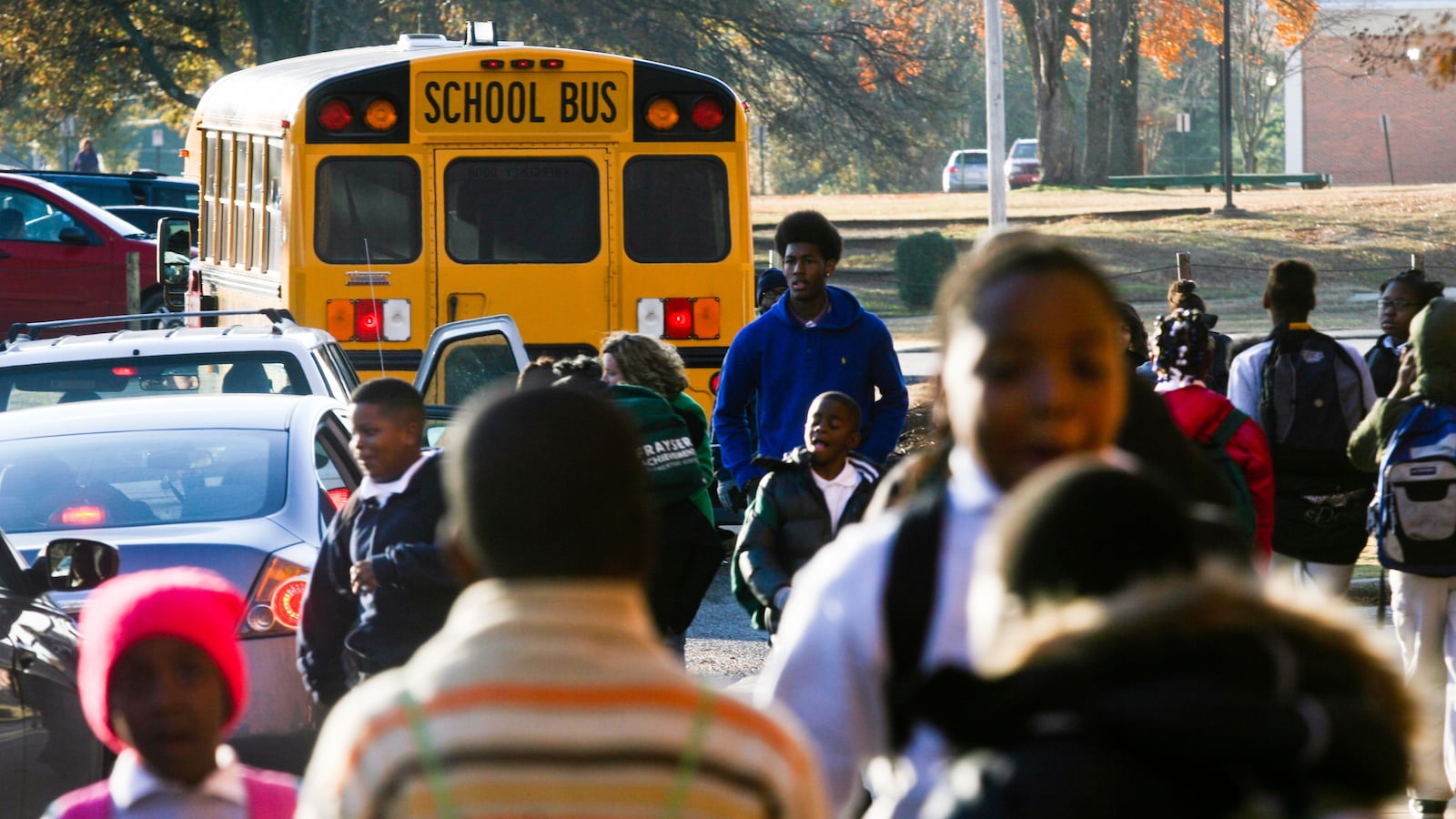Tired Indianapolis teens may soon be able to sleep in.
With research increasingly pointing to health and academic benefits for teens who are able to sleep later, some Indianapolis Public Schools board members are calling on the district to explore the possibility of starting high school later in the morning.
“Every bit of research shows that secondary school students should start school later,” said board member Kelly Bentley. “If we are really about doing what’s right for kids … I think we ought to really consider doing it.”
The issue surfaced at a school board meeting last week during a presentation by IPS operations officer David Rosenberg on a proposal to put the district on a new, standardized bus schedule.
Rosenberg said the new bus schedule would reduce transportation costs by ensuring that all buses have time to do multiple routes, first taking some kids to high school, then taking others to elementary schools.
The proposal called for high school classes to begin at 7:20 a.m. and elementary classes to start between 8:15 a.m. and 9:05 a.m.
Currently, bell schedules in IPS schools vary widely, but most high schools start at 7:30 a.m. and most elementary schools start after 9 am. (One notable exception is Shortridge High School, which offers an international baccalaureate magnet program and starts at 9:10 a.m.)
Rosenberg told the board that standardized, tiered start and release times could save $7 million a year by reducing the number of buses and drivers the district would need.
Several board members suggested that if the district is planning to change school start times, it should consider flipping the schedule, so that elementary school students start earlier and high schoolers have a later start time.
Many districts across the country have looked at school start times as studies show benefits ranging from lower dropout rates to fewer car accidents among high school students when their school day starts later.
University of Minnesota researcher Kyla Wahlstrom, who has been studying school start time policies for two decades, said nearly all the research points to academic and health benefits from starting high school later.
Wahlstrom said that teens who get less than 8 hours of sleep are more likely to use drugs, cigarettes and alcohol. They are also more likely to suffer from depression. Biology leads teens to naturally fall asleep and wake up later, so starting school later means students typically get more sleep.
In a federally funded investigation into the effects of later start times in eight districts that made the switch, Wahlstrom found that when school started later, students did better on several measures, including mental health, attendance and, at some schools, scores on standardized tests.
During the discussion before the board last week, board member Diane Arnold added that research also suggests that it is better for young children to start school earlier in the day.
“We’ve talked about this for many, many years,” she said. “(This should) be part of the conversation.”
But there are practical challenges that often stymie districts interested in making the shift.
One problem is that many teenagers have work, sports or extracurricular activities after school that would be made more difficult by a later school day. Another concern is that earlier start times for elementary schools can put pressure on families to find additional childcare in the afternoon.
Superintendent Lewis Ferebee said the central office staff had discussed the proposal, but he remains skeptical about whether IPS should push the start of the high school day later in part because of practical concerns over issues such as whether it’s safe for elementary students to wait for the bus in the morning when it is still dark.
“There are some benefits, and there are some items to consider on both sides, in terms of how we start school,” Ferebee said.
Wahlstrom said districts often see resistance when they propose moving start times because of logistical challenges. But the Centers for Disease Control and Prevention urged later start times for middle and high schools last year, and districts are increasingly changing their policies.
“There’s no question that it’s a lot of work,” Wahlstrom said. “(But) parents are the ones with the strong initiative to say, ‘my child is desperately in need of more sleep.’ ”

